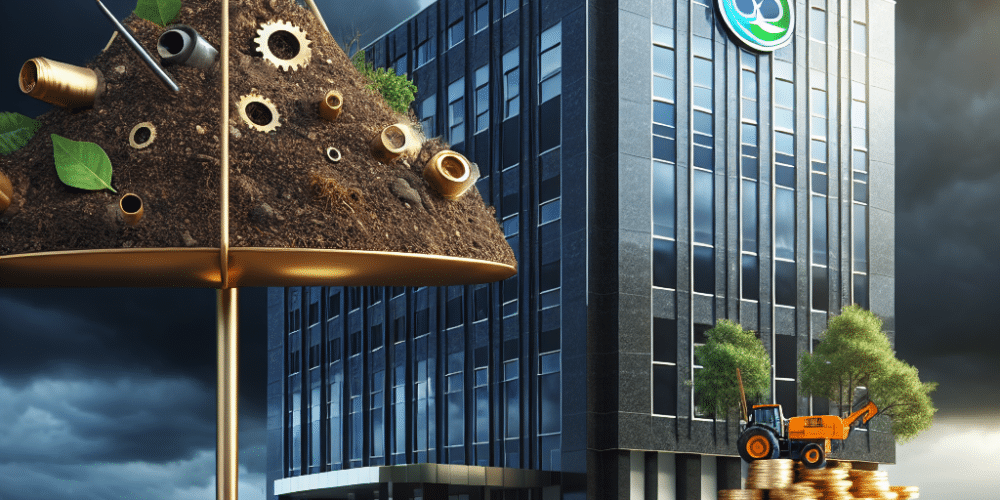The Boring Company, a venture owned by Elon Musk, is facing significant scrutiny and a hefty fine nearing $500,000 due to serious environmental violations linked to its tunneling operations. The company had been working on an ambitious project to create an “underground highway” but allegedly caused substantial damage to local infrastructure, including the sewer systems and county manholes. This damage stemmed from the inappropriate disposal of drilling byproducts such as waste, drilling fluids, and wastewater.
Inspectors from the Clark County Water Reclamation District (CCWRD) reported numerous instances where Boring Company workers ignored directives to halt the unlawful waste disposal. A cease-and-desist letter detailed instances of non-compliance, describing how employees would momentarily comply with orders only to resume violations once they assumed inspectors had left the site.
An official notice of violation obtained by Fortune highlights the extensive cleanup effort required to address the improper disposal of 12 cubic yards of drilling mud, drilling spoils, and assorted solid waste from the company’s operations. This situation necessitated the involvement of multiple CCWRD crews to remediate the environmental impact.
Documentation further reveals that penalties over $100,000 from the CCWRD are rare, with only one other company having received such a fine, underscoring the severity of The Boring Company’s violations.
In September, executives from The Boring Company met with CCWRD officials to discuss the violations. During this hearing, the company accepted responsibility for its actions and agreed to adhere to specific conditions set forth by the District to prevent future infractions and to resume its tunneling activities in other areas.
This isn’t the first indication of trouble for the company. Several months earlier, The Boring Company began construction in front of the renowned Wynn Resort casino in Las Vegas. Their progress was rapidly publicized through a video featuring their tunneling machine emerging at the casino site, highlighting the ambitious scale of the project. Elon Musk has described this infrastructure as a transformative initiative aimed at expediting travel across the city for both visitors and residents.
The Boring Company has boasted that during peak operation, the Las Vegas Loop facilitated the transport of over 4,000 passengers, drastically reducing commute times. However, this project has not been free from controversy. A 2024 report by Fortune reported significant safety concerns, specifically an incident where excavation activities exposed foundational pillars, leading to multiple penalties.
Moreover, The Boring Company is currently disputing a series of health and safety violations dating back to 2023. These allegations include incidents where employees were reportedly injured by exposure to hazardous chemicals, prompting ongoing disputes over the company’s safety practices.
Critics have raised concerns about the potential environmental and safety risks associated with the company’s tunneling projects. They argue that while the idea of an underground highway may be innovative, it should not come at the cost of environmental degradation and public safety. Proponents, on the other hand, see the project as a pioneering step towards modernizing urban transportation, arguing that such technological advancements are necessary for future city planning.
As The Boring Company continues to expand its operations, the spotlight remains firmly on its ability to comply with regulatory standards and maintain a commitment to environmental stewardship. The outcome of this situation could set significant precedents for how infrastructure projects balance innovation with regulatory compliance and environmental responsibility.

Garry Sputnim is a seasoned journalist and storyteller with over a decade of experience in the trenches of global news. With a keen eye for uncovering stories that resonate, Alex has reported from over 30 countries, bringing light to untold narratives and the human faces behind the headlines. Specializing in investigative journalism, Garry has a knack for technology and social justice issues, weaving compelling narratives that bridge tech and humanity. Outside the newsroom, Garry is an avid rock climber and podcast host, exploring stories of resilience and innovation.
















